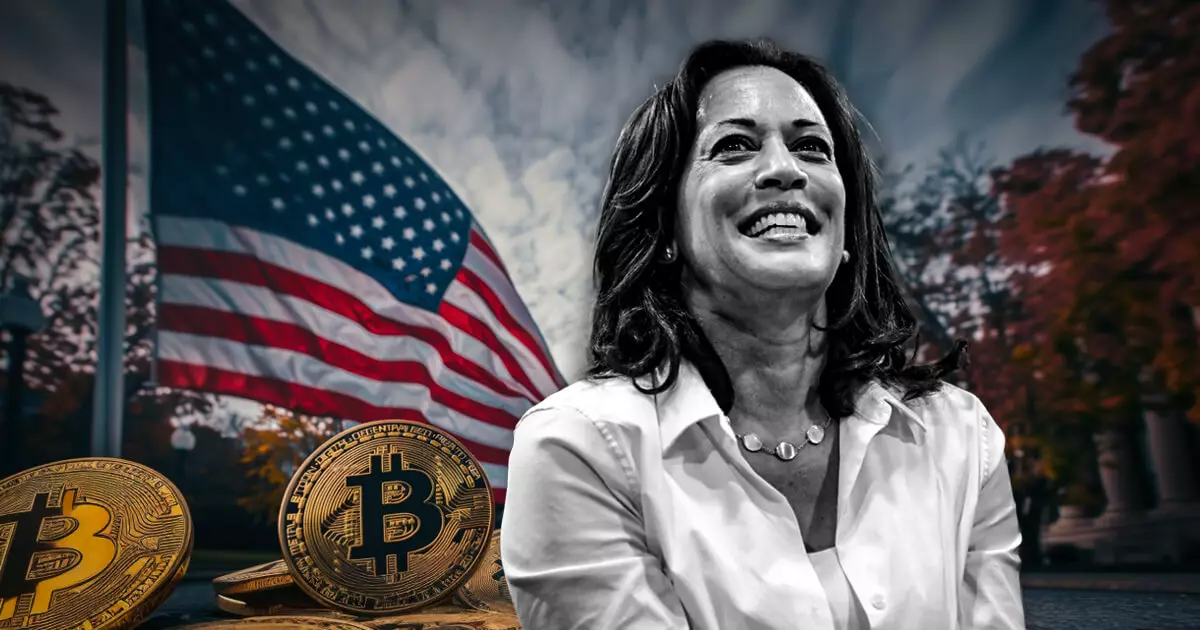As the US presidential election approaches, the potential implications for the cryptocurrency sector are at the forefront of discussions among analysts and investors alike. The intersection of U.S. politics and the evolving landscape of digital assets reveals a complex dynamic that varies significantly based on the candidate’s policy perspectives. Recently, Alex Thorn, head of research at Galaxy Digital, provided insights into how different candidates may influence the future of cryptocurrency regulation, particularly highlighting the stark contrasts between Vice President Kamala Harris and former President Donald Trump.
Historically, the crypto industry has grappled with varying degrees of regulatory scrutiny. The stance taken by presidential candidates can either stifle growth or foster an innovative environment. Thorn’s analysis indicates that Kamala Harris, while not a beacon of optimism for crypto enthusiasts, represents a less problematic scenario compared to the current administration under President Joe Biden. Nonetheless, the most promising candidate for the crypto sector appears to be Donald Trump. Thorn’s findings portray Trump as a candidate who could accelerate growth through his favorable policies towards digital assets.
In evaluating the major issues, Thorn outlines distinct positions taken by Harris and Trump on several key areas affecting the crypto landscape, including taxation, Bitcoin mining, banking regulations, and self-custody. These issues are integral in determining how each administration might handle the burgeoning crypto market.
Tax policy is a critical issue for the crypto space, and Thorn’s scorecard indicates significant differences between Harris and Trump. Harris’s proposals suggest a challenging environment for crypto taxation as she has pledged to reverse tax cuts benefiting the wealthiest Americans, including potential implications for crypto investors. Conversely, Trump is seen as advocating for clearer and more favorable tax regulations, which could encourage investment in cryptocurrencies.
Such tax clarity is paramount for fostering a business-friendly environment for allocation and investment in cryptocurrencies and blockchain ventures. This contrast lays the groundwork for investors to weigh their options based on the candidate who will support a more advantageous tax regime.
The Bitcoin mining debate further underscores the divergence between the two candidates. Harris’s historical rhetoric suggests a somewhat hostile approach, particularly in the context of Biden’s 30% tax on mining profits. On the other hand, Trump has shown robust support for the mining sector, even framing it as an integral part of domestic manufacturing. His engagement with miners and willingness to support their interests could incentivize expansion within this crucial sector, which plays a significant role in Bitcoin’s value and adoption.
Banking regulations present another area where Harris and Trump demonstrate differing philosophies. While Harris may entertain relaxation of restrictive banking access for crypto businesses, Trump’s willingness to dismantle Operation Chokepoint 2.0 suggests a vision for a more crypto-friendly banking environment. His position advocates for enabling national banks to engage with blockchain technologies, potentially accelerating the integration of crypto within mainstream finance.
On self-custody, while both candidates lack a definitive stance, Trump’s commitments to protecting self-custody rights provide reassurance to users who value ownership and control over their digital assets. This area remains crucial for individuals and developers advocating for decentralization.
The broader implications of these candidates’ positions extend beyond Bitcoin. A Trump administration could catalyze a thriving environment for altcoins by creating a regulatory framework that encourages innovation and competition. Conversely, a Harris administration could bring about a climate of caution, particularly impacting tokens and projects less robust than Bitcoin. Investment products such as Uniswap’s UNI may find newfound opportunity in a more favorable regulatory framework realized under Trump’s policies.
The upcoming election presents significant stakes for the cryptocurrency industry. Thorn’s analysis depicts Trump as the candidate with the most upside potential for the sector, while Harris’s victory might not be detrimental but is unlikely to inspire the same level of enthusiasm among crypto advocates. As both candidates continue to define their platforms, the crypto community remains vigilant in assessing which policies may shape its future.













